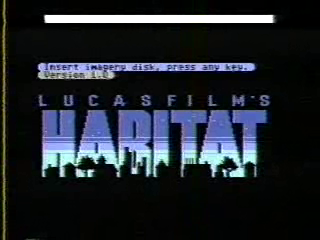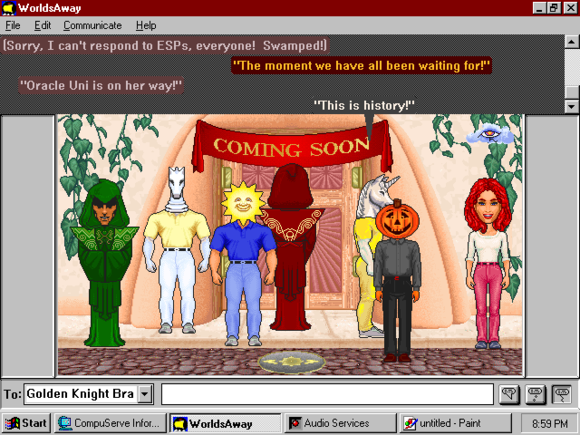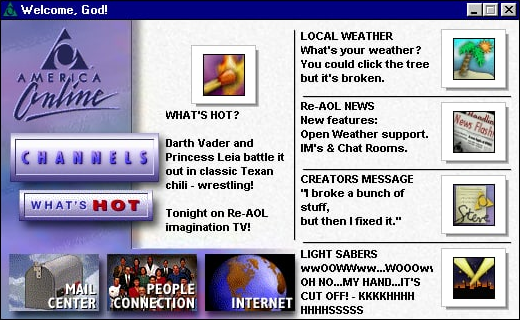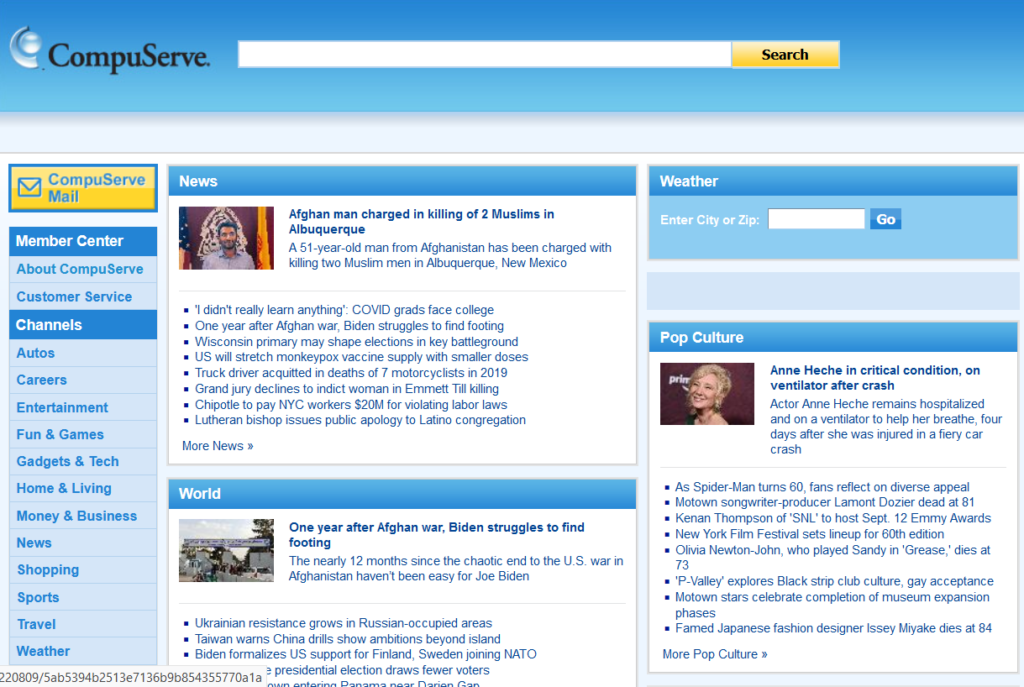Long, long ago, three full ages before Zuckerberg’s doomed Metaverse, there was Lucasarts, formerly Lucasfilm Games, and Maniac Mansion, and the SCUMM engine.
Lucasarts went on to have a long legacy of adventure games, and while it’s gone now and most of its progeny is owned by some mouse creature, it survives in a number of forms, like the upcoming Monkey Island re-revival.
Another legacy of Lucasarts and SCUMM is what is possibly the first graphical MUD, called Habitat.

What? You don’t know what a MUD is, or a MOO or a MUCK? A lot of knowledge is in danger of being lost, but we don’t have time to remind you of rudiments here.
Habitat was an early experiment in online communities, a server-based virtual world whose clients were Commodore 64s. In appearance it looks a whole lot like a multiplayer version of Maniac Mansion.
It never went public, but did eventually become a paid feature, in modified form. on the C64 online service QuantumLink under the name Club Caribe. Then, with the wane of the Commodore 64 as a viable platform, QuantumLink closed their servers and rebranded as America On-Line, a.k.a. AOL. And that is not only history at this point, but ancient history. Read more about it here.
While there was still competition in the dial-up online service space, two creators of Habitat, Randy Farmer and Chip Morningstar, partnered with Fujitsu to have another go at a Habitat-style service, this time called WorldsAway. They partnered with AOL competitor CompuServe, and didn’t do badly for a while.
There’s all kinds of things to talk about here, and I have rather more knowledge than most because I was involved with this, I was volunteer staff at the flagship WorldsAway world, called Dreamscape. I was a participant in the CompuServe forum before the main service even opened, I spend an entire night on the phone as a teen, our old 486DX running Windows 3.11 downloading the client software.
WorldsAway was basically my life for a few years. It could be incredibly addicting, and spirits were high in the early days. There was a feeling of being at the forefront of something. The Internet was just starting to become really big. Who knew what it would become?
What happened to WorldsAway is a story, one that I’m probably not qualified to tell. I know there were problems with business management even from the start. The world staff was constantly said to be fighting with higher-ups, who wanted to cheapen or diminish the project. In size, certainly, the initial world Dreamscape never got anywhere as large as what we hoped for. Even compared to the size of its Commodore 64 predecessor Club Caribe, it was pretty small.
It’s said that they were a west coast operation, and many of their staffers were queer. One of the eventual spinoff worlds that WorldsAway would spawn was explicitly queer-friendly. Given the successes and continued struggles of queer-friendly media on the internet today, I feel like WA’s acceptance of alternate lifestyles should probably be better known.

I still have a couple of friends from those days. Others I’ve sadly lost touch with. A few friends from that time, notably Tiggles, Esme, and Rosaleah, have departed our physical world as well. Maybe some comfort could be had in the idea that maybe they’re users in some higher-order reality, who may have logged-off of our world, but are still out there in a more profound form. If they’re out there and somehow seeing this: please spare a thought for me. I’ll be back out there some day.
The Reno Project is a website devoted to preserving as much of those early projects, those ancient times, as possible. You could immerse yourself in the screenshots there, and dream of a past era that barely was. One of its competitors at the time, which is a bit better known today, is The Palace. One other service that still exists that competed with it is There, although good luck making an account (I tried). And Second Life of course continues to chug along. All of these things seem to me like more worthy projects than Zuckerberg’s latest progeny.



